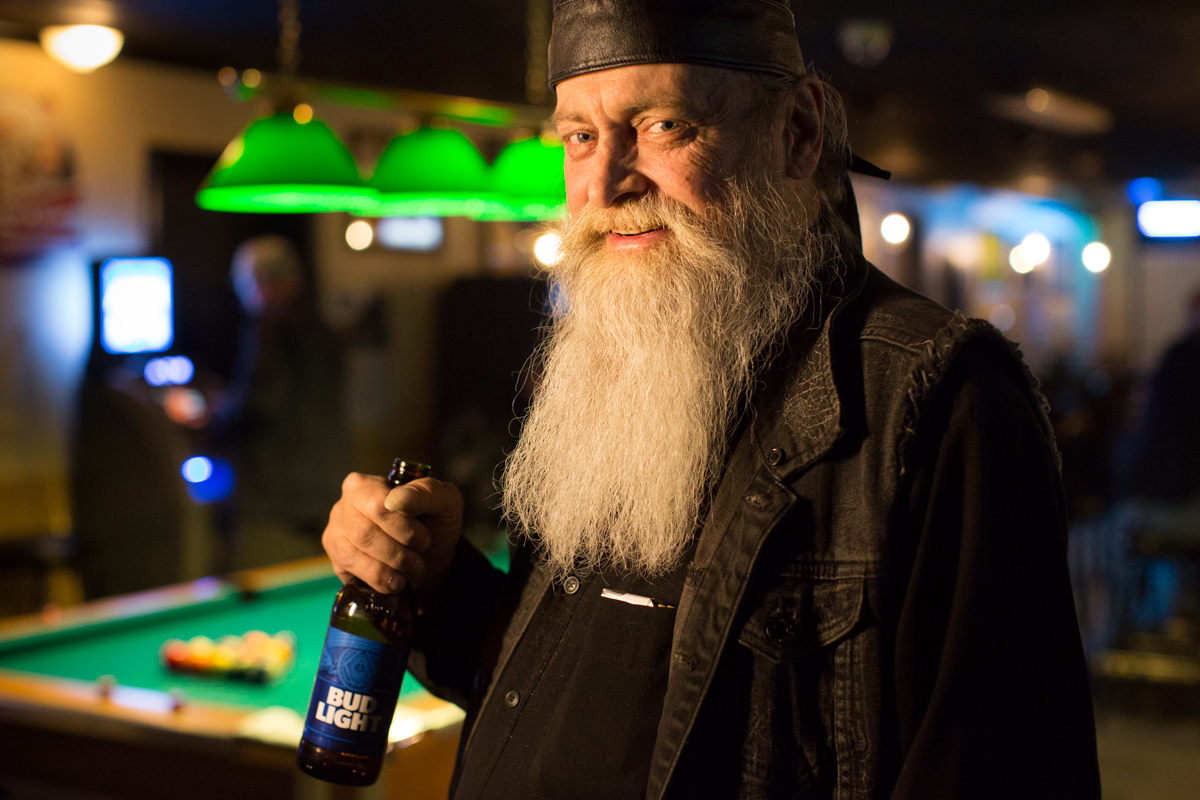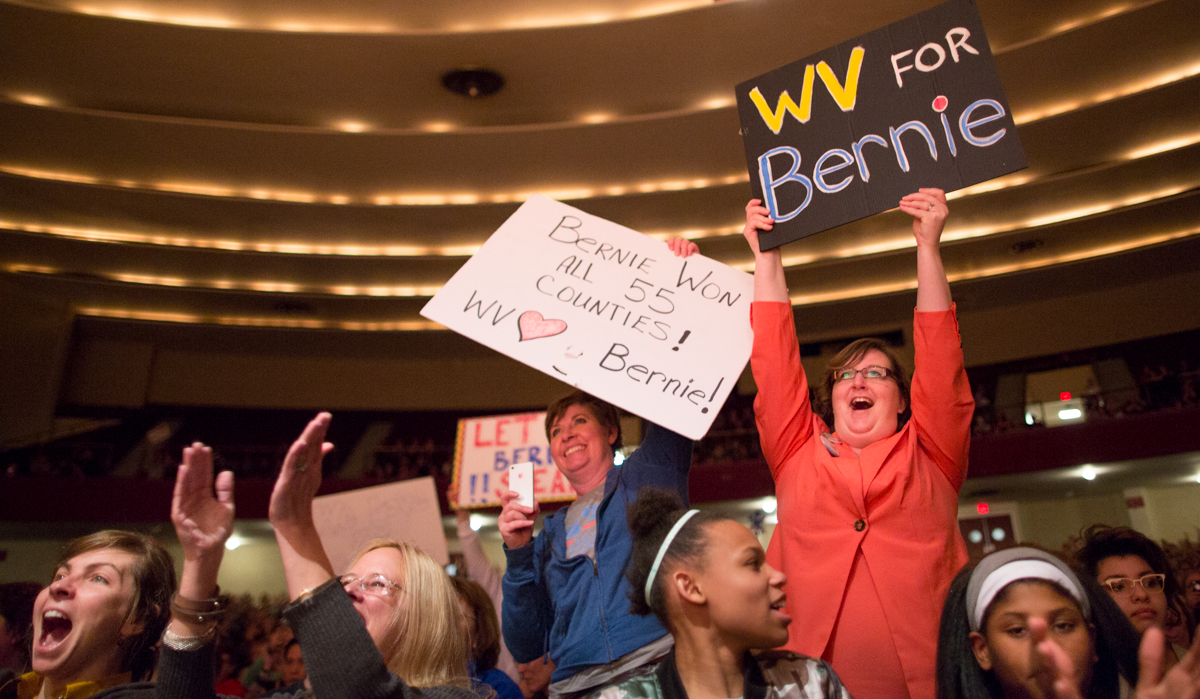The stories of the hardworking, blue collar West Virginians who looked to Trump as an outsider willing to change the political order in Washington have been told by both local and national media outlets, but the question now is whether he will stick to his word.
At a Sunday night event in Charleston, West Virginia, U.S. Senator Bernie Sanders of Vermont challenged the president to keep his campaign promises of helping working class West Virginians who voted to put him in office.
Sanders’ name is especially familiar in West Virginia, where he’s been an outspoken critic of economic inequalities and lapped the state last spring (with stops in Huntington, Morgantown, Charleston and even McDowell County) before defeating Democratic rival Hillary Clinton in the state’s primary election.
Of course, Clinton went on to secure the Democratic nomination and — in November’s general election — now-President Donald Trump won nearly 68 percent of the vote in West Virginia, putting him 42 points ahead of Clinton.
Sanders’ return to West Virginia’s capital city Sunday was not a campaign event, though, but a stop on a tour to promote his new book, titled “Our Revolution.” That, however, does not mean the event wasn’t political.
In his two hours on stage at the Charleston Municipal Auditorium, Sanders preached the same platform that underscored his 2016 campaign: redistributing wealth to a shrinking middle class, providing universal healthcare and protecting government programs like Social Security and Medicare. But instead of rallying the crowd around the “establishment’s” work against his progressive notions, Sanders had a new target.
“So to all of those people and more who voted for Mr. Trump, tell him to keep his word. Tell him not to cut Medicaid, Medicare and Social Security,” he said.
Eighteen percent of West Virginia’s population is over the age of 65, the traditional eligibility age for Social Security; another 18 percent lives under the federal poverty line. Fourteen percent of West Virginians under the age of 65 rely on disability benefits for their income, which includes Medicare or Medicaid coverage.
Yet West Virginia’s population — one that heavily relies on these government services – largely voted for a party that often talks of cutting those services. But Sanders says with Trump, that’s not surprising. He says the the billionaire businessman-turned-president had a message that resonated with the people of West Virginia and many others elsewhere in America.
“’I, Donald Trump, I’m going to take on the establishment, the Democrats and the Republicans and I’m going to create a government that works for the working class of this country,’” Sanders said, mimicking the president.
“Now the truth is, it’s a good speech. The bad news is he never meant a word of it,” he added.
Sanders’s harsh criticism of the president, he said, is based on Trump’s appointments to head the nation’s top government agencies. Those nominees, some of whom have now been confirmed by the U.S. Senate, include long-time members of Congress, the CEOs of corporations and Wall Street institutions and major political donors — people who are not necessarily considered outsiders.
Several times during the address, Sanders warned about the impacts Trump’s policies will have on the nation’s future as a democracy. That includes a travel ban on seven Muslim-majority countries that was recently shot down in federal court.
“President Trump is trying to create a climate of fear from one end of this country to the other and what he is doing is what demagogues have always done, and that is to pick on minorities and try to divide this country up,” said Sanders.
Although the crowd of nearly 2,000 in Charleston welcomed Sanders’s criticism of the President, the Senator’s trip was not warmly welcomed in all parts of the state. A town hall scheduled to take place in McDowell County Monday morning was scrapped Friday evening. The event was to be recorded as an MSNBC television special at the Welch National Guard Armory.
A statement released by the West Virginia National Guard’s Public Affairs Office Sunday said that the U.S. Department of Defense does not allow its facilities to be used for political or election events, including town halls, and once the details of the event were shared, policy prohibited the Guard from accommodating the event. Sanders addressed the cancelation of the McDowell event in Charleston.
“[I] don’t know how it happened, but let me tell the people who did that — if you think we are not going back to McDowell County to hold that town meeting, you are very mistaken,” he said. “We are going to be there.”
Sanders attempted to end his Charleston appearance on a positive note, encouraging those who attended the event to get involved in politics at any level, whether it be in Washington or in their own back yard. Democracy is not a spectator sport, he told the crowd, and change doesn’t happen overnight, but even Trump’s West Virginia could become a progressive voice in the future.
This story was originally produced by West Virginia Public Broadcasting.



